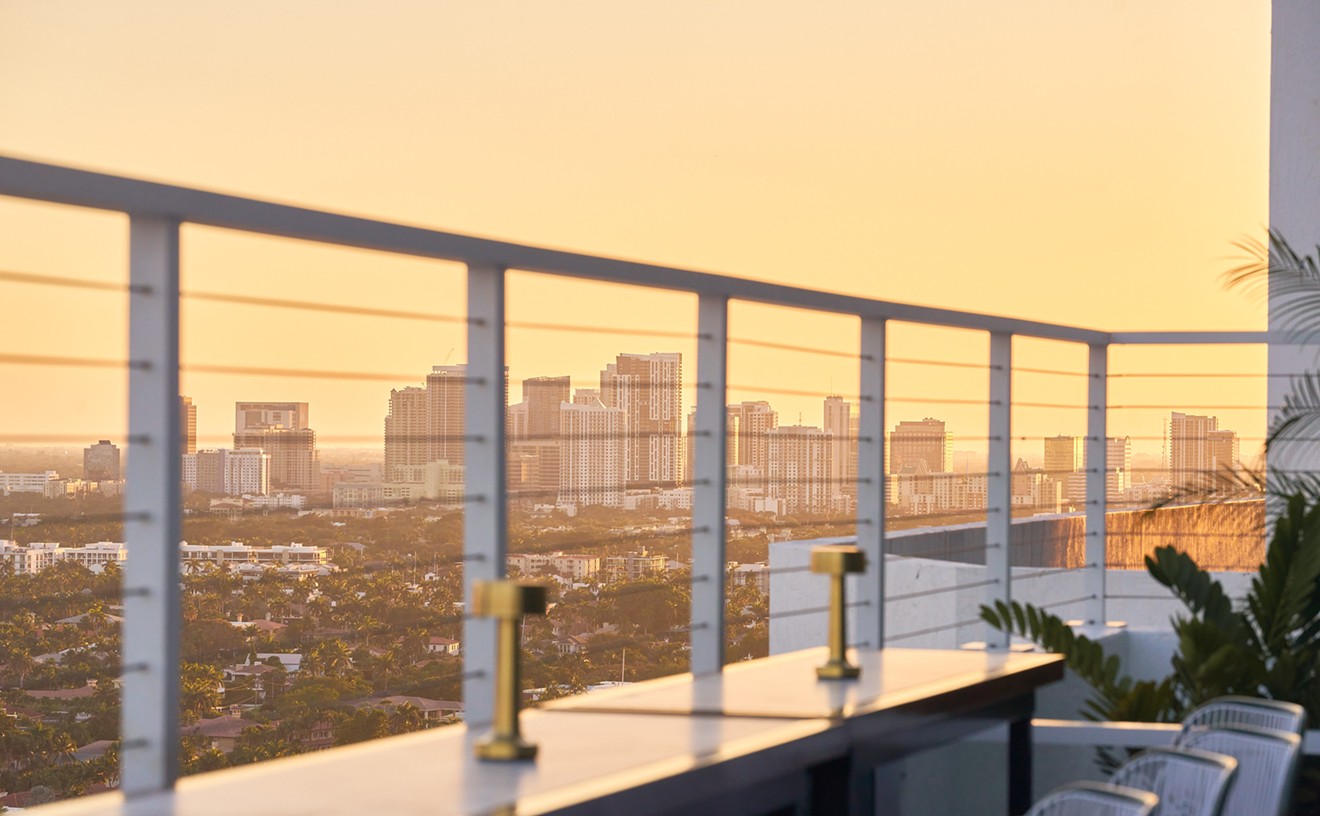Opening a brewery, winery, or distillery in unincorporated Miami-Dade County just became a little easier.
This past December 6, the Board of County Commissioners reduced the minimum amount of space required to have such places next to schools to 1,000 feet (provided they're not used for agricultural use). The decision was unanimous. Before, the law required a minimum distance of 2,500 feet — roughly a half-mile — from schools and churches and 1,500 from any other establishment that sells alcohol.
This new ruling affects Spanish Marie Brewing Company, a 2,500-square-foot production brewery with a taproom whose co-owner Albert Cespedes is hoping to open at 14241 SW 120th St. in West Kendall by next year.
When Cespedes searched the industrial zones in unincorporated Miami-Dade, he found seven locations that could accommodate the brewery. All but one had a church nearby.
Before the modification, Cespedes says, he wouldn't have been able to add a taproom, which legally allows breweries to sell beer directly to customers on premises. And without a taproom, his brewery wouldn't be able to thrive as a startup on distribution alone.
"Taprooms are the backbone of microbreweries," Cespedes said at the Miami-Dade Unincorporated Municipal Service Area Committee meeting, where the modification was debated before receiving a unanimous vote among the commissioners. "Without one, most would go out of business, especially small ones, because the margins just aren't there."
At least 25 percent of the beer made at microbreweries is sold through its taprooms, according to 2014 statistics by the Brewer's Association.
The legislation was sponsored all but one commissioner, Javier Souto, although he ultimately voted in favor of the modification. For him, there was an issue of consumption that needed to be addressed.
"There's driving and drinking," he said. "We have a horrendous traffic situation in this town. The life of human beings and the drug issue is a lot more important to me than the survival of one or two businesses."
But for other commissioners, such as Sally Heyman, it was a matter of zoning. Recognizing the success Schnebly Redland's Winery and Wynwood Brewing Company brought to their respective parts of the county, she and fellow commissioner Juan Zapata saw an opportunity to attract the same business to an area of approximately 300,000 people west of the turnpike.
"This is a zoning issue and the very opportunity to have a new industry coming into an area and brew. This is incredibly successful in what's going on in microbrews just limited to the Wynwood area," Heyman said.
Added Zapata: "What we're trying to do here is open up the area to some new business."
The ordinance modification essentially paves the way for future breweries in the rest of unincorporated Miami-Dade, Cespedes says. He credits commissioner Esteban Bovo for getting churches eliminated from the space requirement.
"It was important for us to share our findings with the commissioners to make sure they updated the ordinance to accommodate the growing craft beer industry," Cespedes tells New Times. "We can now open a taproom without any issues, and that's a huge deal for the brewing industry."
[
{
"name": "Air - MediumRectangle - Inline Content - Mobile Display Size",
"component": "19274298",
"insertPoint": "2",
"requiredCountToDisplay": "2"
},{
"name": "Editor Picks",
"component": "17482312",
"insertPoint": "4",
"requiredCountToDisplay": "1"
},{
"name": "Inline Links",
"component": "18711090",
"insertPoint": "8th",
"startingPoint": 8,
"requiredCountToDisplay": "7",
"maxInsertions": 25
},{
"name": "Air - MediumRectangle - Combo - Inline Content",
"component": "17482310",
"insertPoint": "8th",
"startingPoint": 8,
"requiredCountToDisplay": "7",
"maxInsertions": 25
},{
"name": "Inline Links",
"component": "18711090",
"insertPoint": "8th",
"startingPoint": 12,
"requiredCountToDisplay": "11",
"maxInsertions": 25
},{
"name": "Air - Leaderboard Tower - Combo - Inline Content",
"component": "17482313",
"insertPoint": "8th",
"startingPoint": 12,
"requiredCountToDisplay": "11",
"maxInsertions": 25
}
]










